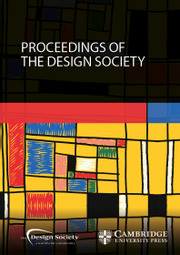No CrossRef data available.
Article contents
Towards digital representations for brownfield factories using synthetic data generation and 3D object detection
Published online by Cambridge University Press: 16 May 2024
Abstract
This study emphasizes the importance of automatic synthetic data generation in data-driven applications, especially in the development of a 3D computer vision system for engineering contexts such as brownfield factory projects, where no data is readily available. Key points: (1) A successful integration of a synthetic data generator with the S3DIS dataset, leading to a significant enhancement in object detection of previous classes and enabling recognition of new ones; (2) A proposal for a CAD-based configurator for efficient and customizable scene reconstruction from LiDAR scanner point clouds.
- Type
- Artificial Intelligence and Data-Driven Design
- Information
- Creative Commons
- This is an Open Access article, distributed under the terms of the Creative Commons Attribution-NonCommercial-NoDerivatives licence (http://creativecommons.org/licenses/by-nc-nd/4.0/), which permits non-commercial re-use, distribution, and reproduction in any medium, provided the original work is unaltered and is properly cited. The written permission of Cambridge University Press must be obtained for commercial re-use or in order to create a derivative work.
- Copyright
- The Author(s), 2024.


